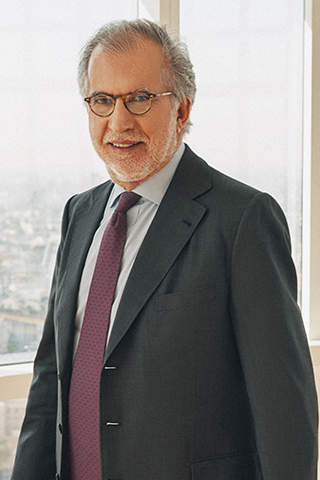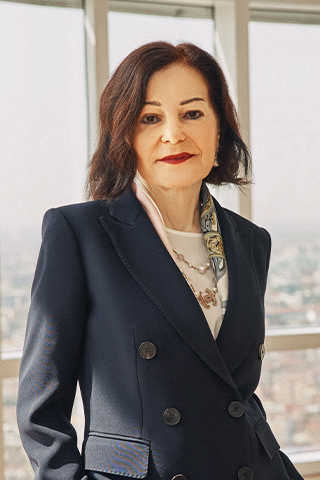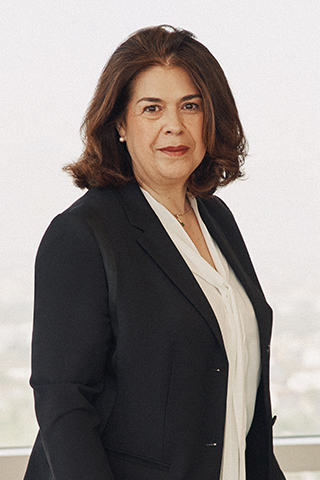Board Committees
With the exception of the Audit Committee, which is inherent to the one-tier model adopted by the Company and is appointed by the Shareholders' Meeting, the Board of Directors, also in accordance with the provisions of the Italian Corporate Governance Code, has established other five Committees, vested with research, advisory and proposal-making powers diversified by sector of competence:
- the Governance and Sustainability Committee
- the Risk Committee
- the Remuneration Committee
- the Nomination Committee
- the Related-Parties Committee.
The Committee members have the necessary knowledge, skills and experience to perform the tasks assigned to them and ensure that any other corporate positions they hold in other companies or entities (including non-Italian ones) are compatible with their availability and commitment to serve as a Committee member.
Board Committees' composition, functions and competences are set out in the UniCredit Board and Board Committees Regulation.
Information on the Committees established by the Board of Directors and their activities is available in the Corporate Governance Report concerning each year.
Committee's role
The Governance and Sustainability Committee provides advice and support to the Board of Directors on matters related to corporate governance and in fulfilling its responsibilities while pursuing a sustainable success as integral component of the Group's business strategy and long-term performance.
As to the Governance, the Governance and Sustainability Committee supports the Board of Directors with reference to the design and the implementation of UniCredit corporate governance system, corporate structure and Group governance models and guidelines and on special projects pertaining to the above (if any). To this purpose, the Committee:
i) Oversees the consistency of the Bank's corporate governance with applicable laws, rules and regulations (in particular with the Italian Corporate Governance Code) and monitors their developments as well as international and national best practices, updating the Board of Directors where material changes thereof are detected and have repercussions on the existing Company corporate governance;
ii) Reviews of the Corporate Governance report to be published;
iii) Submits to the Board of Directors, when appropriate or necessary, proposal for amendments to the corporate governance system, corporate structure and Group governance models and guidelines (e.g., Board and Board Committees roles, responsibilities and functioning, delegation of powers), providing the rationale for said amendments to be adopted;
iv) Defines a group-wide governance framework and/or guidelines (subject to calibrations to the specificities of each mandatory local legal framework), liaising with corresponding corporate bodies of the Group entities on corporate governance matters brought to its attention as appropriate.
As to Sustainability, the Governance and Sustainability Committee supports the Board of Directors on Sustainability and ESG related matters (with the exception of all risk related ESG components - e.g., Climate and Environmental risks - which fall under the Risk Committee remit). To this purpose, the Committee upon evaluation of its Chair and the CEO, carries out preliminary activities, analyzes and submits proposal on the sustainability and ESG framework, policies and guidelines.
Bearing in mind the remit of the Governance and Sustainability Committee as a whole and/or and the specific skills and competences of its members individually, the Chair of the Board may avail himself of said Committee and/or of its member(s) in discharging his/her tasks. In this context, the Governance and Sustainability Committee members shall abide by the instructions received by the Chair and be duly aligning and liaising with the Chair and with each other as appropriate.
Composition

Pietro Carlo Padoan
Chairman of the Board of Directors

Elena Carletti
Deputy Vice Chair
Committee's role
In the context of the one-tier system adopted by the Company, the Risk Committee carries out tasks pertaining to risk management according to the provisions of laws and regulations, providing advice and support to the Board of Directors in that respect so that the latter can properly and effectively determine its risk framework appetite and risk governance policy.
The Risk Committee supports the Board of Directors on risk management related matters, performing all the activities instrumental and necessary for the Board to make a correct and effective determination of the Risk Appetite Framework and of the risk management policies.
More in details, the Risk Committee carries out preliminary activities, analyzes and submits proposals to support the Board of Directors including on the following topics:
- Defining and approving risk management strategic guidelines, framework and policies (including the non-compliance risk, climate and environmental risks, risk data quality). Within the RAF, the Committee performs those tasks as necessary for the Board of Directors to define and approve the risk objectives (risk appetite) and the tolerance threshold (risk tolerance);
- Examining the annual funding plan;
- Verifying correct implementation of risk strategies, management policies and RAF, and
- Defining policies and processes for evaluating corporate activities, including verification that the price and conditions of client transactions comply with the risk-related business model and strategies.
The Risk Committee also examines the risk assessments carried out and those planned by the corporate control functions on yearly basis for determining their own annual plans of activity.
Pursuant to the Italian Corporate Governance Code, the Risk Committee opines on aspects relating to the identification of the main corporate risks and supports the Board in assessments and decisions concerning the management of risks attached to prejudicial occurrences which the same Committee became aware of.
Based on the succession plans defined with the support of the Nomination Committee, the Committee identifies and proposes to the Board of Directors the candidate suitable for the appointment as Head of Group Risk Management or assesses his/her removal, after having consulted the Audit Committee. Moreover, the Risk Committee is consulted beforehand for the identification and proposal to the Board of the candidate suitable for the appointment as Head of Internal Audit, Group Compliance, Anti Financial Crime Compliance and Group Internal Validation, or on the assessment of their removal.
Without prejudice to the competences of the Remuneration Committee, the Risk Committee checks that the incentives underlying the remuneration and incentive system comply with the RAF, particularly taking into account risks, capital and liquidity.
Composition

Elena Carletti
Deputy Vice Chair

Paola Bergamaschi
Director
Committee's role
The Remuneration Committee is established to provide opinion and support to the Board of Directors on the adoption and implementation of appropriate remuneration policies and decisions, ensuring their update also based on the results of the Company and any other circumstances.
The Remuneration Committee:
a) Submits to the Board proposals on the remuneration of the Board of Directors, and on the remuneration and the performance goals associated with the variable portion of the remuneration for CEO and, upon proposal from the CEO, of the General Manager, Deputy General Managers, Heads of the corporate control functions (excluding the Head of Internal Audit, whose proposals are formulated by the Audit Committee) and/or Executives with strategic responsibilities and other personnel whose remuneration and incentive systems are decided upon by the Board;
b) Monitors and oversees the criteria for remunerating the most significant employees, as identified pursuant to the relevant Bank of Italy provisions, as well as on the outcomes of the application of such criteria.
Furthermore, the Committee issues opinions to the Board on:
- Group remuneration policy as well as the remuneration and incentive systems for CEO, General Manager, Deputy General Managers, Heads of corporate control functions, Executives with strategic responsibilities and other Group Material Risk Takers as identified according to applicable regulation;
- Group incentive schemes based on financial instruments;
- The remuneration policy for corporate officers (members of the Board of Directors, Board of Statutory Auditors and Supervisory Board) in Group companies.
Additionally, the Committee:
a) Supervises the process for identifying Material Risk Takers on an on-going basis;
b) Directly oversees the correct application of rules regarding the remuneration of the Heads of corporate control functions, working closely and liaising with the Audit and Risk Committees as necessary;
c) Works and liaises with the other Committees, particularly the Risk Committee, to verify that the incentives included in compensation and incentive schemes are consistent with the RAF, ensuring the involvement of the corporate functions responsible for drafting and monitoring remuneration and incentive policies and practices;
d) Provides appropriate feedback on its activities to the Board of Directors, Audit Committee and the Shareholders' Meeting;
e) Where necessary drawing on information received from the relevant corporate functions, expresses its opinion on the achievement of the performance targets associated with incentive schemes, and on the other conditions laid down for bonus payments.
Composition

Antonio Domingues
Director

Paola Bergamaschi
Director
Committee's role
The Nomination Committee supports the Board of Directors on matters related to its composition, to the nomination and succession planning of the Management of the Company, as well as to other nominations falling within the Board's remit.
The Nomination Committee:
a) Submits proposals to the Board regarding the optimal qualitative and quantitative composition of the Board, and the maximum number of seats held by Directors in other companies considered compatible with effectively fulfilling these roles at UniCredit;
b) Submits proposals, at least once every three years, to the Chair of the Board of Directors concerning the selection of external advisor supporting the Board in conducting the Board's self-assessment process, as well as opines and supports the Board in the self-assessment process, as directed by the Chair of the Board of Directors;
c) Sets targets for the least well represented gender in corporate bodies, along with promoting gender equality at all levels of the organisation.
The Nomination Committee provides opinions and support to the Board of Directors also regarding:
a) The assessment on the compliance of Board Directors with the requirements provided by applicable laws and the Articles of Association (including the ban on interlocking directorships laid down by applicable laws), and the assessment that they collectively and individually abide by the optimal qualitative and quantitative composition of the Board identified by the Board itself;
b) The selection of candidates for the seats of Chair, Chief Executive Officer and Director of UniCredit, in the event of co-optation, and, should the Board present its own list of candidates for the position of independent Director for approval by the UniCredit Shareholders' Meeting, taking into due account any recommendations from shareholders, as per the process adopted by the Board;
c) The appointment of the CEO and, upon proposal of the CEO, of the General Manager, Deputy General Managers and other Executives with strategic responsibilities as well as other personnel whose appointment is decided upon by the Board;
d) The assessment on the compliance of the General Manager, the Manager in charge of drafting the company financial reports and the other Heads of the main corporate functions, with the requirements provided by applicable laws and the Articles of Association, if any;
e) The definition of appointment and succession plans for the CEO, General Manager, Deputy General Managers, providing the Board with a regular and comprehensive update on the status of the succession plans, at least on an annual basis, as well as on relevant progress and potential gaps identified;
f) The definition of policies for the succession plans for the Executives with strategic responsibilities;
g) The contribution to the identification of candidates proposed to the Board for the roles of Heads of corporate control functions, in compliance with the specific policies approved by the Board; coordinating with the Risk Committee and the Audit Committee for the proposals which are under their remit;
h) The definition of the policy for the appointment of corporate officers (members of the Board of Directors, Board of Statutory Auditors and Supervisory Board) in Group companies;
i) The designation of corporate officers (members of the Board of Directors, Board of Statutory Auditors and Supervisory Board) in the main companies;
l) The performance of market scouting /assessments /hiring proposals for specific roles that fall in the remit of the Board.
Composition

Antonio Domingues
Director
Committee's role
The Related-Parties Committee oversees issues concerning transactions with related parties pursuant to CONSOB Regulation no. 17221/2010, transactions with associated parties pursuant to Bank of Italy Circular no. 285/2013 (Part III, Chapter 11), and the specific Global Policy of the Bank, carrying out the specific role attributed to independent directors by the aforementioned provisions. Furthermore, it carries out any other duties assigned to it within the Global Policy for the management of transactions with persons in conflict of interest.
In order to enable the Related-Parties Committee to carry out its duties, the Company's competent offices ensure a constant monitoring of transactions in scope of the procedures for the identification and management of transactions with related and/or associated parties, also in view of enabling the Committee to assess cases of voluntary exemption and to propose corrective actions.
In the exercise of the duties assigned to it under applicable laws and regulations, the Related-Parties Committee provides the Board of Directors with:
- Advance and justified opinions, also binding, on the overall adequacy of internal procedures governing the identification and management of transactions with related parties and/or associated parties undertaken by UniCredit and/or Group companies, as well as relevant amendments, pursuant to CONSOB Regulations for transactions with related parties and Bank of Italy Regulations for transaction with associated parties;
- Advance and justified opinions issued, as expressly envisaged, on any interest in completing transactions with related parties and/or associated parties undertaken by UniCredit and/or Group companies, as well as on the profitability and substantive correctness of the related conditions, in the event that the Board of Directors' decision is requested.
Composition

Maria Pierdicchi
Director

Vincenzo Cariello
Director





